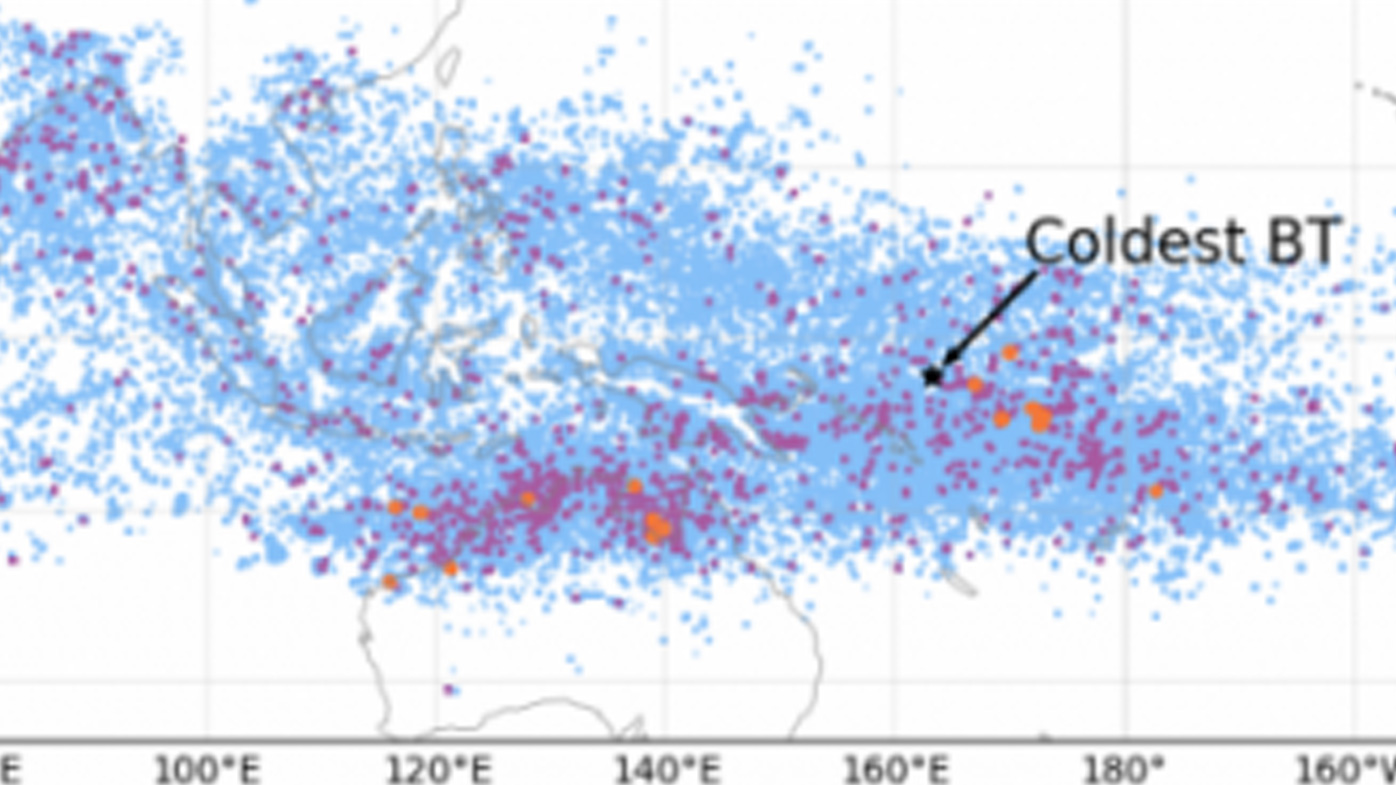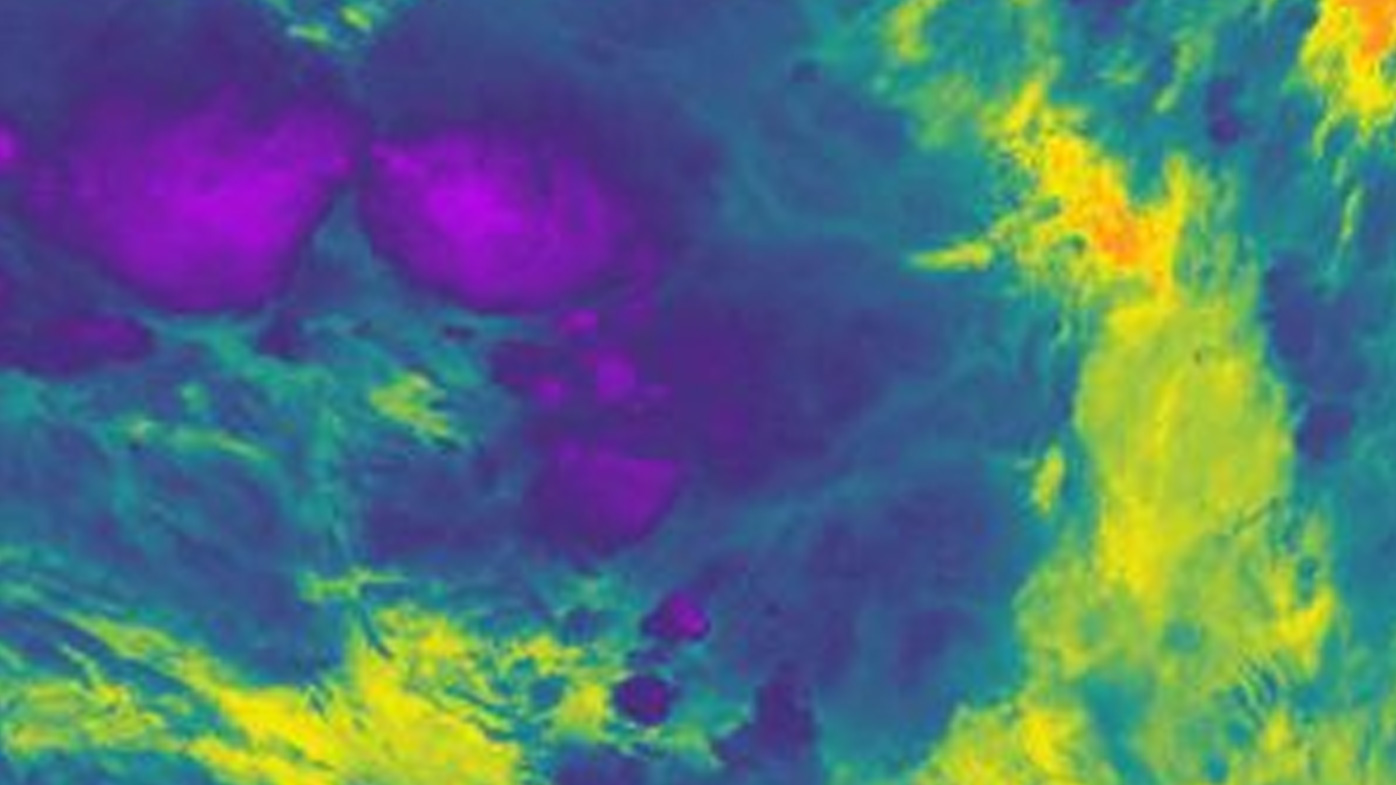The coldest cloud ever recorded was found by scientists tracking just over 1300 kilometres north-east of Australia's Cape York.
A new study found a severe thunderstorm cloud which formed over the Pacific Ocean had a temperature of minus 111 degrees Celsius.
The freakish cloud, which tracked near Nauru on December 29, 2018, is colder than any other storm cloud ever measured.

READ MORE: La Niña officially declared over after wet and wild summer
Thunderstorms and tropical cyclones can typically reach heights of 18 kilometres above ground, where air temperatures plummet.
However, this storm was so powerful it pushed through the troposphere and into the stratosphere, continuing to cool as it gained height despite the surrounding air being warmer.
Satellites tracked the cloud reaching an altitude of more than 20.5km above sea level.
Scientist call such an event an "overshooting top".
It was this overshoot that led to the storm cloud having the coldest known temperature ever recorded, according to the UK's National Centre for Earth Observation (NCEO).

READ MORE: Long weekend weather forecast for your state or territory
Dr Simon Proud, a research fellow at Oxford University and the National Centre for Earth Observation, said the cloud reached an "unprecedented temperature".
"We found that these really cold temperatures seem to be becoming more common – with the same number of extremely cold temperatures in the last three years as in the 13 years before that," Dr Proud said.
"This is important, as thunderstorms with colder clouds tend to be more extreme, and more hazardous to people on the ground due to hail, lightning and wind.
"We now need to understand if this increase is due to our changing climate or whether it is due to a 'perfect storm' of weather conditions producing outbreaks of extreme thunderstorms in the last few years."
Post a Comment